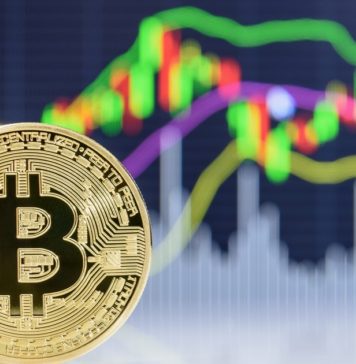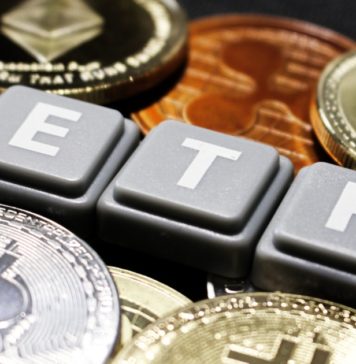Despite Bitcoin (BTC) slipping back below $50,000, more and more investors are likely to move their capital into Bitcoin and gold markets in the second half of 2021 (H2), asserted to Mike McGlone on Aug. 23, the senior commodity strategist at Bloomberg Intelligence.
The financial analyst cited the consistently lower yields offered by the 30-year US Treasury note behind his upside analogy. He noted that if its rate of return persists below 2%, it could enhance the price discovery stage for Bitcoin while posing a competitive advantage for traditional safe-haven assets like gold.
#Bitcoin, #Gold & Long #Bonds: Three Amigos for 2H Appreciation? The U.S. Treasury 30-year yield sustaining below 2% has bullish implications for gold and Bitcoin. Unlike the stock market, the old analog store-of-value and new digital version share substantial corrections.. pic.twitter.com/UYanE4sPSb
— Mike McGlone (@mikemcglone11) August 23, 2021
“Unlike the stock market, the old analog store-of-value and new digital version share substantial corrections,” McGlone added, referring to the little reversion in the S&P 500 index in the first half of 2021 (H1) that increases its potential to correct lower in the H2.
In turn, it arranges new capital for other markets with extreme upside potential, such as Bitcoin.

“The S&P 500 up or down 10% in 2H offers a simple binomial model,” wrote the Bloomberg analyst in a research note in July.
“If up, it would be about 3x the annual norm since 1928 and buoy the Bloomberg Galaxy Crypto Index above the 1H gain of about 80%. If down, bond yields would likely follow and Bitcoin may be a primary beneficiary.”
Bitcoin to reach new record high
The Federal Reserve’s unprecedented interference in the bond market after the March 2020’s market crash drove rates down. Institutional investors that ideally look for 5% annual yields from the bond market to curb inflationary pressures now grappled with short-term bonds, some of them offering yields below zero.
Meanwhile, yields on the longer-dated Treasury also fell to record lows. That forced investors to look for alternatives in the riskiest parts of the financial markets—higher-returning, non-debt investments like Bitcoin.
“It was the breach of [the 2%] threshold in 2020 that preceded the risk-off swoon and laid the foundation for Bitcoin’s move toward new highs this year,” the Bloomberg research noted.

Tapering and Jackson Hole
McGlone’s statements on bonds and Bitcoin correlation come as Jerome Powell, the chairman of Federal Reserve, prepares to deliver a speech at the Jackson Hole summit this week, typically one of the most influential economic events.
The Fed’s efforts to reduce its $120 billion per month bond-buying policy expects to be a dominant theme during the (virtual) Jackson Hole meeting. Investors will watch Powell’s words for any clues on how and when the U.S. central bank would begin its tapering program.
In their July 27-28 meeting, Fed officials agreed to start unwinding their bond-buying policy over a sanguine outlook for economic growth and the jobs market.
Nonetheless, the 30-year Treasury yield remained lower after the news, with reports surfacing that investors were still expecting economic downturns owing to the spread of the Covid-19 Delta variant.
“Many clients have not particularly understood how rates markets have moved, and that has brought in a degree of caution you wouldn’t normally see,” Guneet Dhingra, head of US interest rate strategy at Morgan Stanley, told the Financial Times.
Related: Bitcoin bullish cross on weekly chart paints $225K BTC price target if history repeats
After the Fed outlook on Aug. 18, Bitcoin price rose by more than 14% to reach their three-month high of $50,784.

The BTC/USD exchange rate slipped below $50,000 on Monday on profit-taking sentiment. At its lowest, the pair’s bid was $49,369.
The views and opinions expressed here are solely those of the author and do not necessarily reflect the views of Cointelegraph.com. Every investment and trading move involves risk, you should conduct your own research when making a decision.


